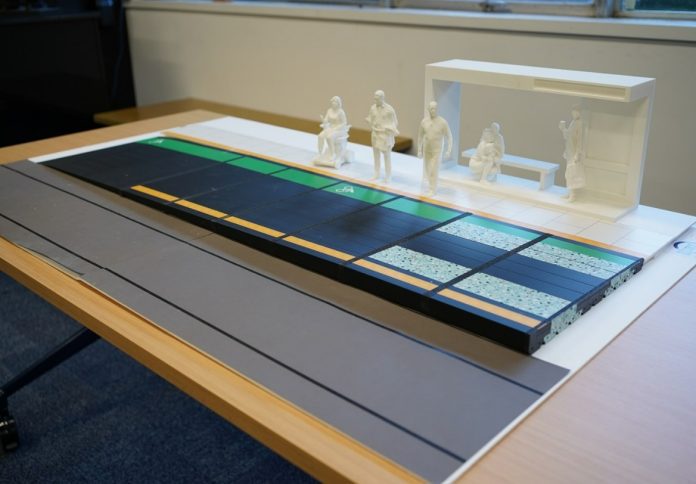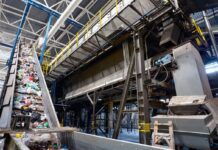
Recycled plastics could soon be used to construct tram stop platforms across Melbourne as part of an ambitious project led by Monash University in partnership with Yarra Trams and industry collaborators.
The initiative aims to create a circular economy model that transforms kerbside and industrial plastic waste into modular, accessible, and sustainable infrastructure for the world’s largest tram network, Monash said in a news release.
Spearheaded by the Monash Institute of Railway Technology (IRT), the project brings together leading industry groups including PACT Group, GT Recycling, DKSH Australia, and Integrated Recycling, to develop and trial recycled plastic platform components.
According to Professor Ravi Ravitharan, Director of Monash IRT, the new platform design represents a shift away from traditional materials in favour of a more efficient and environmentally responsible solution.
“Unlike traditional tram stop platforms, this new modular design offers a cost-effective, sustainable and accessible solution,” he said.
“The design of this product offers a more sustainable solution to build new platform stops and encourages local communities to improve segregation of materials for recycling and reduce waste destined for landfill.”
The project is funded through the Circular Economy Research & Development Fund, administered by Sustainability Victoria under the Victorian Government’s Recycling Victoria: a new economy policy.
Matt Genever, CEO of Sustainability Victoria, said the collaboration showcases how innovative thinking can convert waste into functional urban infrastructure.
“By developing next-generation tram stop platforms from recycled materials, we’re rethinking how we use resources – transforming waste into smart, sustainable infrastructure,” he said.
Yarra Trams is backing the project as part of its broader commitment to improving sustainability across its network. Vincent Destot, CEO of Yarra Trams, said the platform trial holds great potential for reducing environmental impact.
“This sustainable solution has been developed alongside industry and Monash University, with the potential to significantly reduce our environmental impact, and improve sustainability on the world’s largest tram network,” he said.
Monash University’s Deputy Vice-Chancellor (Research and Enterprise), Professor Robyn Ward AM, emphasised the importance of collaborative research in driving real-world change.
“We’re proud to support this important partnership between Monash’s Institute of Railway Technology, Yarra Trams, Sustainability Victoria, and our industry collaborators,” she said. “It’s a strong example of how research, when connected with industry, can drive innovation and generate meaningful outcomes for society.”
The project draws on interdisciplinary expertise from Monash’s Faculty of Engineering and Monash Art, Design and Architecture (MADA), reinforcing the university’s reputation for research excellence and practical innovation.



















